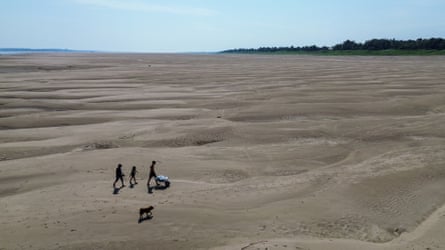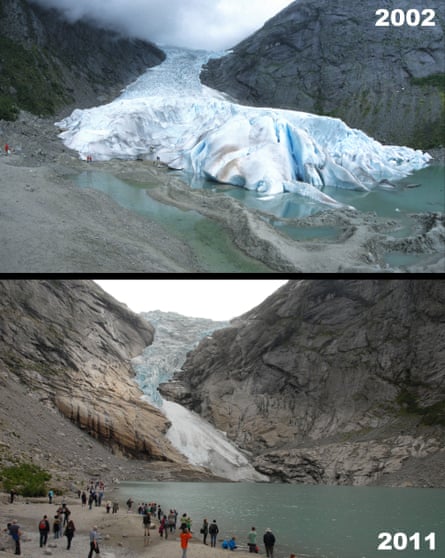Only a third of the world’s river basins experienced normal conditions last year as the climate crisis drove extremes of drought and flood, sometimes both in the same region.
The increasingly erratic water cycle is creating big problems for societies and governments and causing billions of dollars in damage, scientists warned.
The disturbance to natural water cycles has resulted in food scarcity, poor crop yields and rising prices, with some hard-hit regions already experiencing tensions and migration. Stefan Uhlenbrook, the director of the hydrology, water and cryosphere division of the World Meteorological Organization (WMO), said: “This is existential for some regions.”

Last year was the hottest on record, with the mean surface temperature reaching 1.55C above preindustrial levels. A severe drought hit the Amazon basin, peaking from July to September, while dry conditions also afflicted parts of North America, southern and south-eastern Africa and Mexico.
Central Europe, Russia, Pakistan and northern India were among the areas hit by deluges, according to the WMO’s State of Global Water Resources report published on Thursday. In Africa, flooding in the tropical zone killed about 2,500 people and left 4 million people displaced, with widespread damage to vital infrastructure such as roads.
Severe floods hit the south of Brazil, even while the Amazon parched.

Glaciers across all regions lost ice mass for the third consecutive year, with record losses in Svalbard, Scandinavia and north Asia. The losses were equivalent to about 1.2mm of sea level rise.
after newsletter promotion
Uhlenbrook said: “Snow cover is disappearing in some parts, with the snow melt peak coming earlier. This has a huge impact on the ecology – wildlife and vegetation are not getting water available when they need it.”
Governments could take a variety of measures to reduce the impact of the extreme swings in the water cycle. These include reducing greenhouse gas emissions rapidly; improving water storage by building reservoirs or restoring wetlands that act as sponges to retain water for use in droughts and reduce the impact of flooding; and encouraging changes to farming techniques to make the most of the water available.
Early warning systems can also save lives when severe weather hits and cooperation among governments can improve preparation. But the report’s authors warned that governments were failing to act on the issues. “This is not getting sufficient political attention. Investments in preparation pay back for society. Governments should see this as a valuable investment,” said Uhlenbrook.
“If we are not taking proactive measures now, this will cost more in the future,” added Lucy Barker, a senior analyst at the UK Centre for Ecology and Hydrology.

.png) 1 month ago
37
1 month ago
37

















































